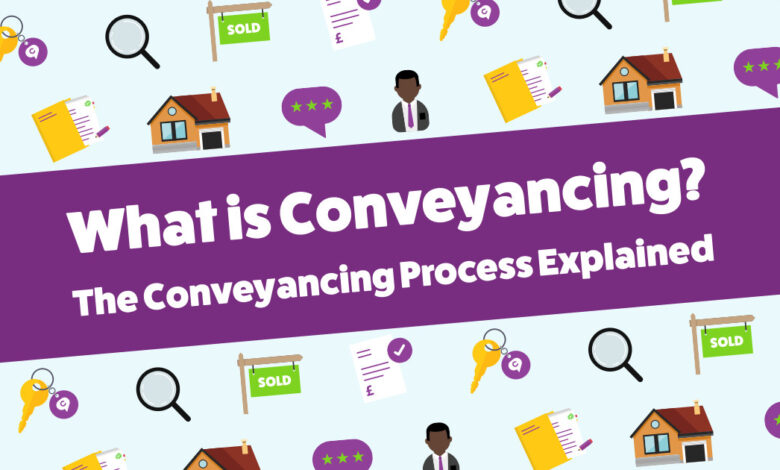Key Dates to Be Aware of in the Conveyancing Process

The process of buying or selling a property can be daunting, especially if you are unfamiliar with the various stages involved. Conveyancing—the legal transfer of property from one owner to another—has several key dates that both buyers and sellers need to be aware of to ensure a smooth transaction.
Understanding these dates is crucial for effectively managing expectations and obligations throughout the process. In this guide, we outline these important milestones to remember and achieve as you look forward to hiring professionals conveyancing in Sydney.
1. Instruction and Initial Documentation
The conveyancing process officially starts when you choose a conveyancer or solicitor and provide them with the details of the transaction. After instruction, your conveyancer will send out a client care letter and terms of business, which you need to sign and return. They will also ask for documents proving your identity and other relevant paperwork.
Key Date: Date of Instruction
This is when you formally engage with a conveyancer, marking the commencement of the legal process.
2. Searches and Enquiries
One of the first steps your conveyancer will take is to conduct a series of legal searches. These include local authorities, environmental authorities, and water and drainage searches. Conveyancing in Sydney utilises these searches since these are crucial for uncovering any issues that might affect the property’s value or your right to use it.
Key Date: Searches Ordered
The date when you ask for legal searches is essential as it influences the overall timeline. Searches can take several weeks to come back, so ordering them early is essential.
3. Drafting and Revising the Contract
Your conveyancer will receive a draft contract from the seller’s solicitor, which outlines the terms of the sale. This stage may involve negotiation on certain points like the price, completion dates, or specific conditions of the sale.
Key Date: Receipt and Approval of the Draft Contract
Both parties must agree on the contents written on the draft contract. The key date here is when the conveyancer in Melbourne makes you approve and sign the contract.
4. Mortgage Offer
If you are buying a property with a mortgage, receiving a formal mortgage offer is a critical step. This document outlines the terms of your loan, and your conveyancer will need to review it to ensure it matches the agreed-upon conditions.
Key Date: Mortgage Offer Received
This is a pivotal moment in the buying process because you cannot proceed to exchange contracts without a mortgage offer.
5. Exchange of Contracts
The exchange of contracts is what makes the transaction legally binding. Both parties will sign their respective copies of the contract, which are then exchanged by their conveyancers. At this point, the buyer pays a deposit (usually 10% of the purchase price).
Key Date: Exchange of Contracts
The date of exchange is crucial because it legally commits both parties to the transaction. Withdrawal after this point can have significant financial implications. That is why having a conveyancer in Melbourne by your side is crucial to make the process stress-free.
6. Completion Date
The completion date is when the property officially changes hands, which is when the balance of the purchase price is transferred from the buyer to the seller. This is the day when the keys are handed over, and the buyer can move into the property.
Key Date: Completion
This is the final step in the conveyancing process. The contract typically sets the completion date, which occurs a few weeks after the exchange of contracts.
7. Post-Completion
After completion, there are still a few tasks your conveyancer in Melbourne needs to handle, such as paying Stamp Duty Land Tax on your behalf and applying to the Land Registry to transfer the deeds of the property into your name.
Key Date: Post-Completion Filings
Ensure that all necessary legal documents are filed promptly after completion. The deadlines for these filings are legally binding.
Why These Dates Matter
Knowing and understanding these key dates in the conveyancing process helps you manage your expectations and prepare for the responsibilities and deadlines. Delays can occur, often due to issues arising from searches, slow responses from third parties, or complications with financing. Being proactive and responsive can help minimise these delays.
For buyers, having your financing in order is particularly important before engaging in the conveyancing process. For sellers, having all the required documentation and information ready can expedite the process significantly.
Final Words
The conveyancing in Sydney involves a complex series of steps that need to be carefully managed. By keeping these key dates in mind, both buyers and sellers can navigate the process more smoothly and with less stress.
Always communicate openly with your conveyancer, who can guide you through this process and help ensure all legal requirements are met on time. Have questions in mind? Talk with Easy Link Conveyancing and their team of local conveyancers in Melbourne and Sydney to complete this process without any hassle.



